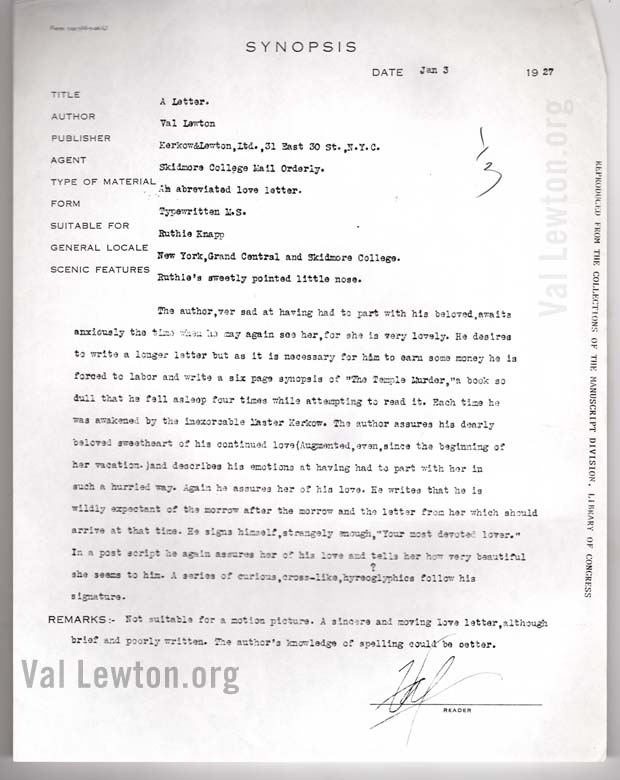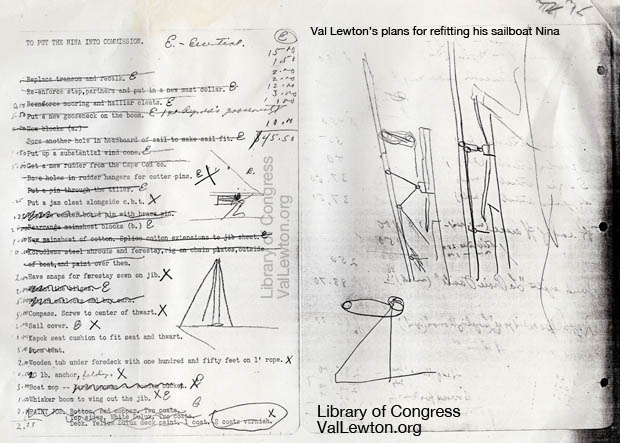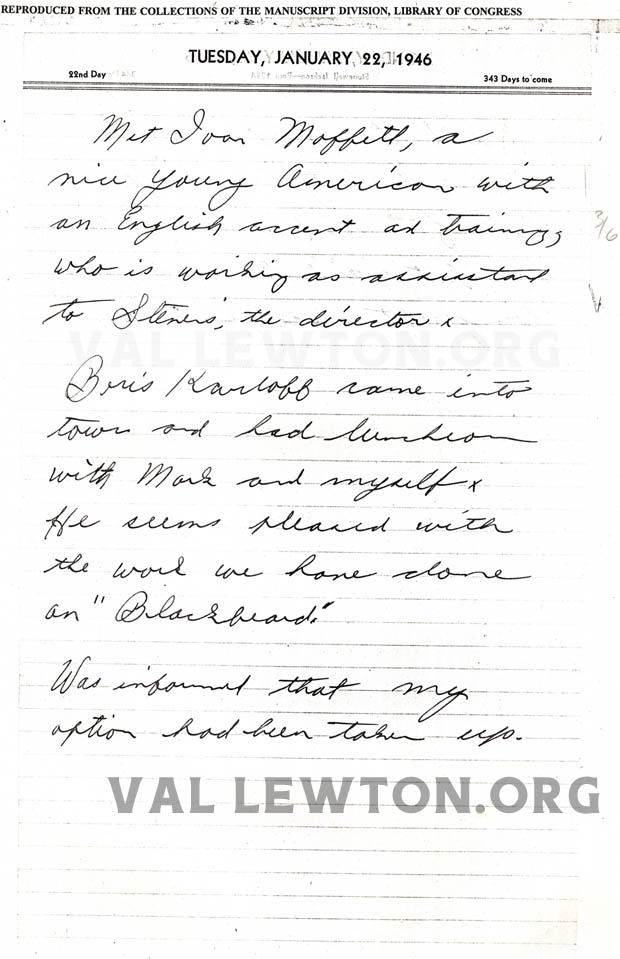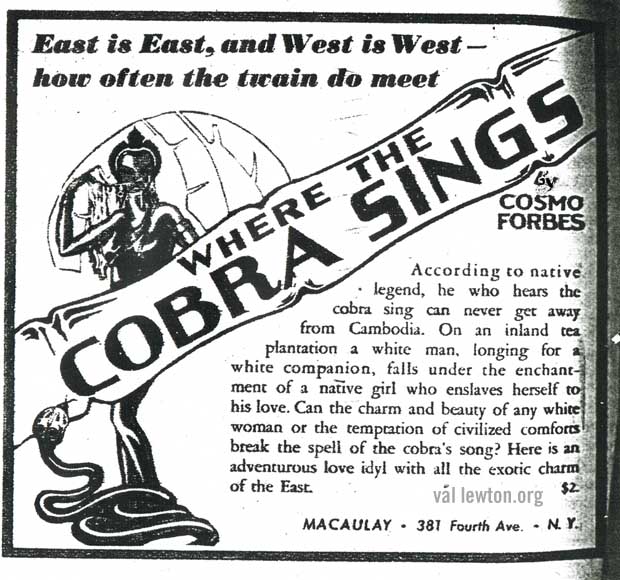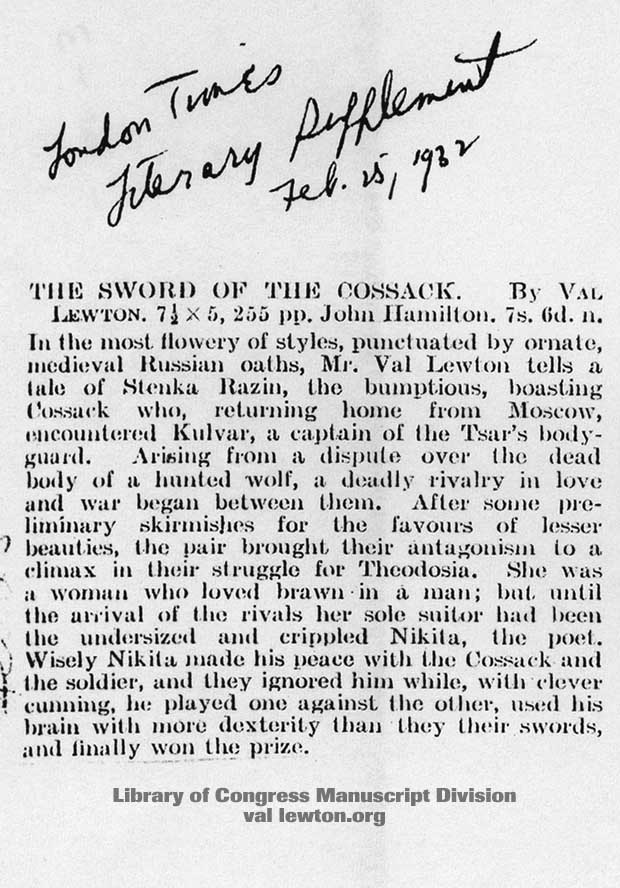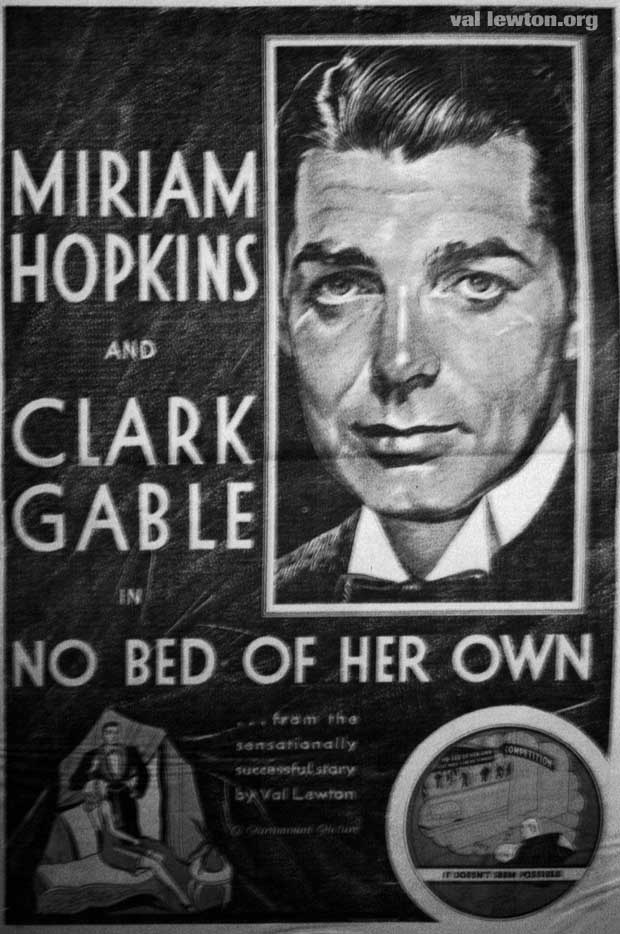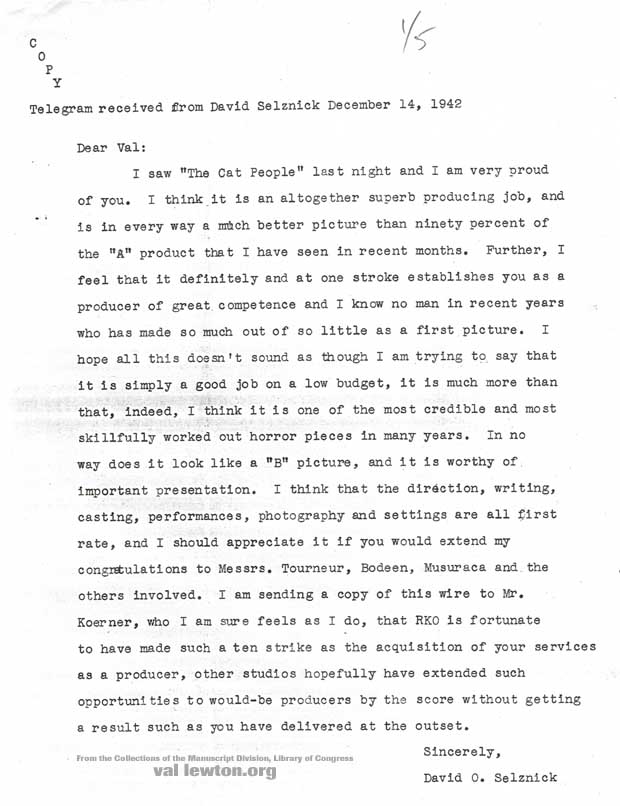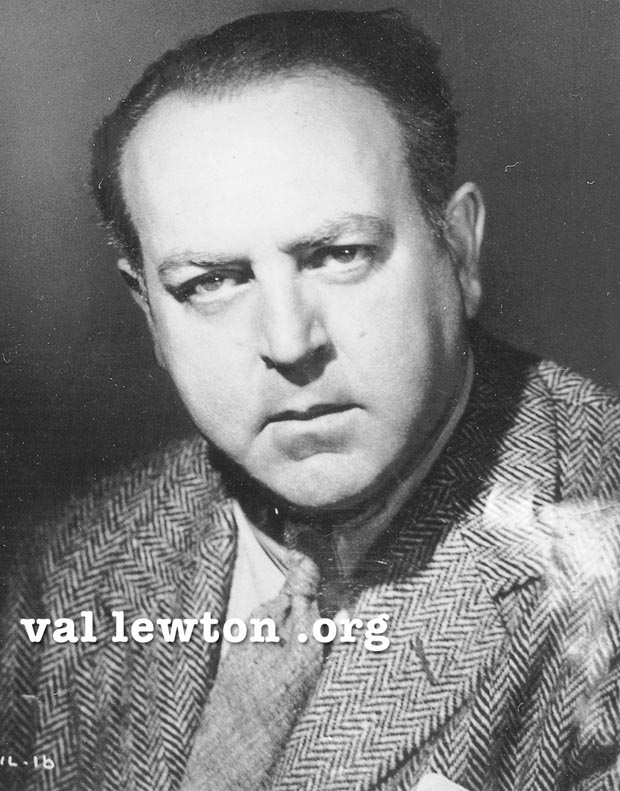
Last Update: September 5, 2025
About Val Lewton
Born May 7, 1904 in Yalta, Russia (now part of Ukraine) – Died March 14, 1951 at Cedars-Sinai Medical Center in Los Angeles, California
Val Lewton was a Hollywood film producer who broke the rules on what a "producer" can do during movie production. Uniquely experienced as a professional writer in almost every aspect of the trade, he had worked for nearly a decade as an all-purpose assistant to David O. Selznick, one of the most successful independent film makers in Hollywood history. Lewton put his experience from his freelance writing career and his Selznick years together at RKO where he was given his own special unit to make a string of eleven films, some so profitable they are credited with saving the financially strapped company from bankruptcy.
Lewton's filmmaking contains a unique sensitivity to human characterization, an emphasis on quality on the screen and in the writing, and all achieved despite limited resources. Lewton always prepared the final shooting script himself and detailed it with visual information to make sure the director he chose would emphasize the elements Lewton most wanted to form the cinematic experience for his audience.
When films are examined they are generally grouped by who the director was, or the star, or the studio, but in this one instance these eleven films are grouped according to their producer: Val Lewton.
This website provides information on all aspects of Lewton's career throughout his life.
Letter from Val Lewton to Ruth Knapp, January 3, 1927
Letter to Ruth Knapp in the guise of a book review from Val Lewton 1927 – Click image to enlarge.
The Nina
Val Lewton's plans for refitting his sailboat the Nina – click image to enlarge. You can see from the pencil drawings alongside the list of tasks that Lewton was mapping out how he would do the sail rigging.
Val Lewton diary entry January 22, 1946
Val Lewton diary entry Feb. 10, 1937
"I resume my journal. I do so in the hope that it will serve a three-fold purpose: it will, in some mysterious way, help me to break the bonds of laziness and sterility which have kept me from writing; that it will re-sharpen my perceptive faculties to the point where I can see and note the things I need to see and note for my work and that it will give me a few moments at the end of each day that can be used to review the day of the date and plan for the date to follow.
To use the Dear Diary method for a moment. The three years which have passed since I last wrote a book have not been particularly happy ones, nor have I added one cubit to my stature, nor to my work or success. I am in a job which fritters away my time, fills me with the most desperate loathing of my fellow men and forces upon me a critical attitude toward the work of my fellows which cannot fail to weaken the self-confidence with which I approach my own work. Time and again I have repeated to myself that my only happiness lies in work, and my only hope of escape from the despised role of story-editor-censor. Yet I have never been able to really get down to work. Again I pledge myself for my own good. Forty days of this year have already passed. I am determined that the rest of the year shall see a steady flow of work from this machine..."
From the Val Lewton papers at the Library of Congress, Washington DC
Where the Cobra Sings - 1932
Where the Cobra Sings - written by Val Lewton using the pseudonym Cosmo Forbes.
New York Times advertisment April 17, 1932
Sword of the Cossack
[Below] 1932 Times Literary Supplement review of Lewton's novel Sword of the Cossack
No Bed of Her Own / No Man of Her Own
[Below] Promotional image for "No Man of Her Own" starring Clark Gable during production when the film was still titled after Lewton's novel No Bed of Her Own
Cat People - David O. Selznick
[Below] Congratulations to Val Lewton from David O. Selznick
